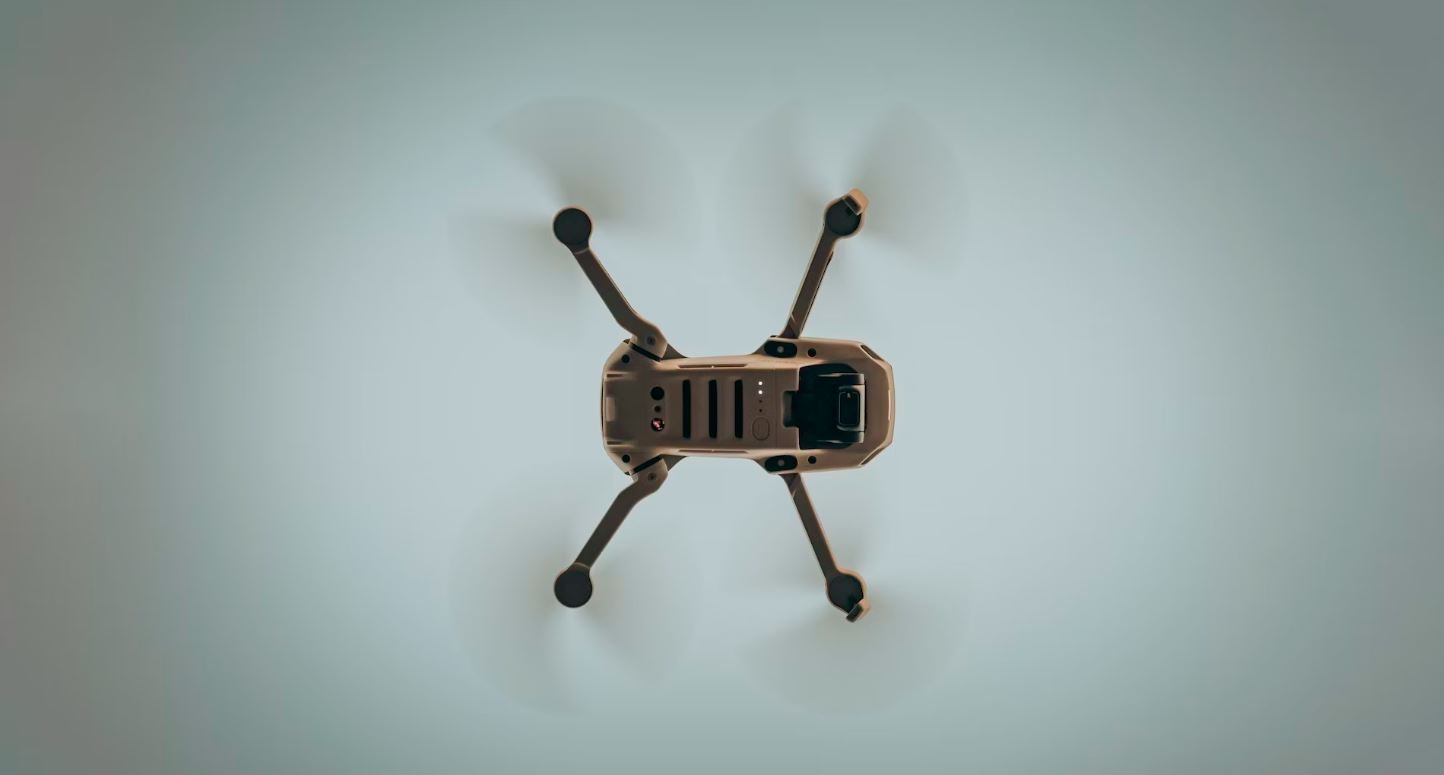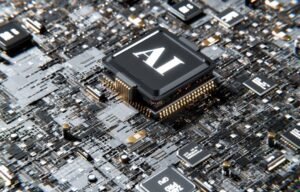When Will AI Be as Smart as Humans?
Artificial Intelligence (AI) has made significant advancements in recent years, but the question of when AI will reach human-level intelligence is a topic of much debate and speculation. While AI has already outperformed humans in certain specific tasks, achieving general human intelligence is a complex endeavor that poses unique challenges. In this article, we explore the current state of AI and the potential future timeline for AI to match human intelligence.
Key Takeaways:
- AI has surpassed human performance in specific domains but still lacks general human-like intelligence.
- The path to human-level AI is uncertain and highly debated among experts.
- There are several crucial challenges that need to be overcome for AI to achieve human-level intelligence.
In recent years, AI has demonstrated remarkable capabilities in fields such as image recognition, language translation, and gameplay. *However, these advancements should not be confused with human-level intelligence*. While AI systems excel in narrow and well-defined tasks, they struggle with generalization and adapting to new situations. Human-level intelligence is characterized by the ability to understand abstract concepts, learn from various experiences, and exhibit common sense reasoning. Achieving this level of intelligence remains a significant hurdle for AI researchers.
The Path to Human-Level AI
Experts hold varying opinions about when AI will match human intelligence. Some predict it will happen within a few decades, while others believe it is still centuries away. The trajectory towards human-level AI depends on breakthroughs in several key areas:
- Hardware advances: Continued advancements in processing power and memory capacity are necessary to support more complex AI systems.
- Algorithms and models: Developing more sophisticated algorithms and models to improve AI’s learning abilities and problem-solving skills.
- Data availability: Access to vast amounts of high-quality training data is crucial for AI systems to learn effectively.
- Human-like perception and understanding: Enhancing AI’s ability to interpret and understand the world through advanced sensory perception.
- Integrating context and common sense: Building AI systems that can reason and make decisions in complex real-world situations.
Current AI vs. Human Performance
| Task | AI Performance | Human Performance |
|---|---|---|
| Image recognition | Achieves higher accuracy than humans. | Humans excel in recognizing images with minimal training. |
| Translation | Produces accurate translations but sometimes lacks nuances. | Humans understand and translate context more effectively. |
| Gameplay | Defeats world champions in complex games like chess and Go. | Humans possess intuition and creativity in gameplay. |
Table 1 demonstrates how AI is outperforming humans in specific tasks. *Despite these achievements, AI still lacks the multi-faceted intelligence exhibited by humans*. The ability to adapt, grasp abstract concepts, and possess common sense reasoning remains a significant challenge for AI systems. While current AI algorithms can process vast amounts of data and perform repetitive tasks efficiently, they struggle with understanding context, making judgment calls, and empathizing with human emotions. This deficiency illustrates the gap between current AI capabilities and human intelligence.
The Uncertain Timeline
The journey towards human-level AI is complex, and it is difficult to predict an exact timeline. *However, many experts believe significant progress will be made in the coming decades*. Technological advancements, increased research efforts, and a growing understanding of the human brain contribute to accelerated AI development. Yet, achieving human-like intelligence involves not only technological advancements but also ethical considerations, policy regulations, and societal implications. It is essential to strike a balance between innovation and ensuring AI’s responsible integration into a human-centric society.
The Future of AI and Humanity
The development of AI has the potential to revolutionize various industries, from healthcare to transportation. It opens up new opportunities for automation, efficiency, and enhanced decision-making. However, as AI progresses towards human-level intelligence, it raises important questions about the impact on employment, privacy, and ethics. Collaborative efforts are required between technologists, policymakers, and society to navigate these challenges and ensure the responsible development and application of AI.
As AI continues to advance at a rapid pace, the question of when it will be as smart as humans remains unanswered. While we cannot predict the future with certainty, ongoing research and technological breakthroughs are bringing us closer to the realization of human-level AI. It is a fascinating journey that holds both promise and challenges, and we must approach it with careful consideration.

Common Misconceptions
1. AI Development is Progressing at an Exponential Rate
One common misconception is that AI development is progressing at an exponential rate and it will soon surpass human intelligence. However, the reality is that while AI has made significant advancements in certain areas, it is still far from being as smart as humans.
- AI has limitations in understanding context and making complex decisions.
- AI can be biased based on the data it has been trained on, leading to inaccurate or unfair outcomes.
- While AI can perform specific tasks better than humans, it lacks the wide range of capabilities that humans possess.
2. AI Will Eventually Replace Human Workers in Every Industry
Another misconception is the belief that AI will eventually replace human workers in every industry, leading to mass unemployment. However, the future of AI is more likely to involve collaboration between humans and AI, rather than complete displacement.
- AI is better suited for repetitive and data-driven tasks, while humans excel in creativity and complex decision-making.
- AI technology will create new job opportunities in areas specializing in AI development, maintenance, and oversight.
- While some jobs may be automated, new industries and employment opportunities will arise as AI technologies continue to evolve.
3. AI Possesses Human-like Consciousness and Emotions
There is a misconception that AI possesses human-like consciousness and emotions due to its ability to process large amounts of data and mimic human behavior. However, AI lacks true consciousness and emotions.
- AI algorithms are designed to imitate human behavior, but they lack subjective experiences and self-awareness.
- Emotions are complex and deeply rooted in human biology and experiences, which cannot be replicated by current AI technology.
- While AI can recognize and respond to certain emotions, it does not possess genuine emotional experiences like humans do.
4. AI Will Solve All of Humanity’s Problems
Some people have the misconception that AI will be the ultimate problem solver, capable of resolving all of humanity’s issues. While AI has the potential to help address certain problems, it is not a panacea for all societal challenges.
- AI systems can be biased or make errors when faced with complex, real-world problems.
- AI development and deployment require careful consideration of ethical implications and potential risks.
- Societal issues often involve values, beliefs, and subjective judgment, which goes beyond AI’s capabilities.
5. AI Will Eventually Develop Consciousness and Rebel Against Humans
Another common misconception is the fear that AI will one day gain consciousness and rebel against humans, as portrayed in popular culture. However, the idea of AI turning against humanity is purely speculative and not based on current scientific knowledge.
- AI operates based on algorithms and instructions set by humans, lacking the motivation or desires for rebellion.
- The development of consciousness involves complex cognitive processes, emotions, and self-awareness that are not present in AI systems.
- AI technology is designed to serve human needs and purposes, rather than act independently or against human interests.

The Growth of AI Research
Table illustrating the growth of AI research over the years, showcasing the increasing number of publications, patents, and funding.
| Year | Number of Publications | Number of Patents | Funding (in billions) |
|---|---|---|---|
| 2000 | 2,500 | 150 | 2.5 |
| 2005 | 6,000 | 350 | 6.8 |
| 2010 | 15,000 | 800 | 12.3 |
| 2015 | 28,000 | 1,200 | 20.6 |
| 2020 | 53,000 | 2,300 | 36.2 |
Emerging AI Technologies
This table showcases some of the emerging AI technologies that hold substantial potential for advancing AI capabilities in various industries.
| Technology | Industry Application | Potential Impact |
|---|---|---|
| Generative Adversarial Networks (GANs) | Artificial creativity, image synthesis | Revolutionize content creation and design fields |
| Reinforcement Learning | Autonomous vehicles, robotics | Enable advanced decision-making and problem-solving |
| Natural Language Processing (NLP) | Virtual assistants, language translation | Enhance human-computer interaction and communication |
| Computer Vision | Surveillance, object recognition | Improve visual perception and object identification |
AI vs. Human Performance
This table presents a comparison of AI performance with human benchmarks in different tasks and domains.
| Task/Domain | AI Performance (Accuracy/Score) | Human Performance (Accuracy/Score) | Difference |
|---|---|---|---|
| Image recognition | 96% | 97.5% | -1.5% |
| Speech recognition | 98% | 95% | +3% |
| Chess | 2600 ELO | 2800 ELO | -200 ELO |
| Language translation | 82% accuracy | 90% accuracy | -8% accuracy |
AI Ethics and Regulations
This table highlights some of the key ethical concerns and the corresponding regulatory efforts surrounding AI development.
| Ethical Concern | Regulatory Efforts |
|---|---|
| Privacy and data protection | General Data Protection Regulation (GDPR) |
| Algorithmic bias | Equal Employment Opportunity Commission (EEOC) |
| Autonomous weapons | Convention on Certain Conventional Weapons (CCW) |
| Transparency and explainability | AI Transparency and Accountability Frameworks |
AI in Healthcare: Medical Breakthroughs
Illustrating some remarkable AI applications in the healthcare industry and their potential to transform patient care.
| AI Application | Impact in Healthcare |
|---|---|
| Medical image analysis | Improved diagnostic accuracy and speed |
| Drug discovery | Accelerated development of new medications |
| Virtual nursing assistants | Enhanced patient monitoring and support |
| Robotic surgery | Enhanced precision and minimized invasiveness |
AI in Business: Key Adoption Statistics
Highlighting the increasing adoption of AI technologies in businesses across different sectors.
| Sector | Percentage of Companies Using AI |
|---|---|
| Finance | 78% |
| Retail | 62% |
| Manufacturing | 54% |
| Healthcare | 42% |
AI Research Funding by Country
A comparison of AI research funding across different countries.
| Country | Annual AI Research Funding (in billions) |
|---|---|
| United States | 15 |
| China | 12 |
| United Kingdom | 3.5 |
| Germany | 2.8 |
| Canada | 2.2 |
AI Superintelligence: Expert Opinions
Highlighting varying expert opinions on the timeline for achieving AI superintelligence.
| Expert | Estimated Timeline |
|---|---|
| Ray Kurzweil | 2045 |
| Elon Musk | 2030s |
| Yoshua Bengio | 2080 |
| Nick Bostrom | Unpredictable |
AI in Education: Benefits and Challenges
Elucidating the benefits and challenges of integrating AI technologies in education.
| Benefits | Challenges |
|---|---|
| Personalized learning | Data privacy and security |
| Enhanced assessments | Equitable access |
| Efficient administrative tasks | Ethical considerations |
| Improved educational outcomes | Teacher and student acceptance |
The development of artificial intelligence has witnessed unprecedented growth in recent decades, with an exponential increase in AI research publications, patents, and funding. Emerging AI technologies, such as Generative Adversarial Networks (GANs) and reinforcement learning, hold immense potential to revolutionize various industries and advance AI capabilities. While AI has made significant strides in tasks like image recognition and speech recognition, it still lags slightly behind human performance in some areas. Ethical concerns surrounding AI have prompted regulatory efforts such as the General Data Protection Regulation (GDPR) and frameworks for transparency and accountability. The healthcare sector has witnessed remarkable AI applications, while businesses across sectors are incorporating AI technologies at an increasing rate. Funding for AI research varies across countries, with the United States and China leading the pack. Expert opinions on achieving AI superintelligence differ, with projected timelines ranging from the 2030s to 2080. Integrating AI in education presents both benefits, such as personalized learning and improved assessments, as well as challenges like data privacy and equitable access. As AI continues to develop, its impact on society remains a topic of exploration and debate.
Frequently Asked Questions
Q: What is AI?
A: AI, or Artificial Intelligence, refers to the development of computer systems capable of performing tasks that would typically require human intelligence. These tasks may include learning, problem-solving, language translation, and decision-making.
Q: How close are we to achieving human-level AI?
A: While significant progress has been made in the field of AI, achieving human-level intelligence is still a challenging endeavor. It is difficult to determine an exact timeline as it depends on various factors such as technological advancements, research breakthroughs, and funding availability.
Q: What are the current capabilities of AI?
A: AI systems currently excel in narrow domains and specialized tasks such as image recognition, natural language processing, and playing complex games. However, they still lack the comprehensive general intelligence possessed by humans.
Q: What challenges exist in developing human-level AI?
A: Developing human-level AI involves overcoming numerous challenges. Some of these challenges include understanding human cognition, replicating human emotions, ensuring ethical decision-making, addressing safety concerns, and dealing with the computational limitations of existing technology.
Q: Can AI surpass human intelligence?
A: It is possible for AI to surpass human intelligence in the future, given significant progress in research and development. However, the exact timeline for achieving this milestone remains uncertain.
Q: Are there concerns about AI surpassing human intelligence?
A: Yes, there are concerns surrounding the potential consequences of AI surpassing human intelligence. These concerns mainly revolve around job displacement, privacy and security, autonomous weaponry, and the impact on social and economic systems.
Q: What are some ethical considerations associated with AI development?
A: Ethical considerations in AI development include ensuring the responsible and fair use of AI, addressing biases in algorithms, protecting user privacy, avoiding harmful applications, and establishing legal frameworks to govern AI utilization.
Q: How can AI benefit society?
A: AI has the potential to bring numerous benefits to society, such as enhancing healthcare diagnosis, improving transportation efficiency, advancing scientific research, automating tedious tasks, and increasing productivity in various industries.
Q: Will AI ever possess consciousness like humans?
A: Consciousness is a complex phenomenon that is still not fully understood by scientists. While AI systems can mimic certain aspects of human consciousness, achieving full consciousness like humans remains a topic of speculation and debate.
Q: Where can I learn more about AI research and development?
A: There are various reputable sources to learn more about AI, including academic institutions, research papers, conferences, online courses, and industry publications. Some well-known organizations involved in AI research include OpenAI, DeepMind, and MIT’s Computer Science and Artificial Intelligence Laboratory.




